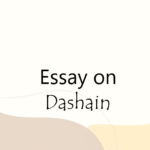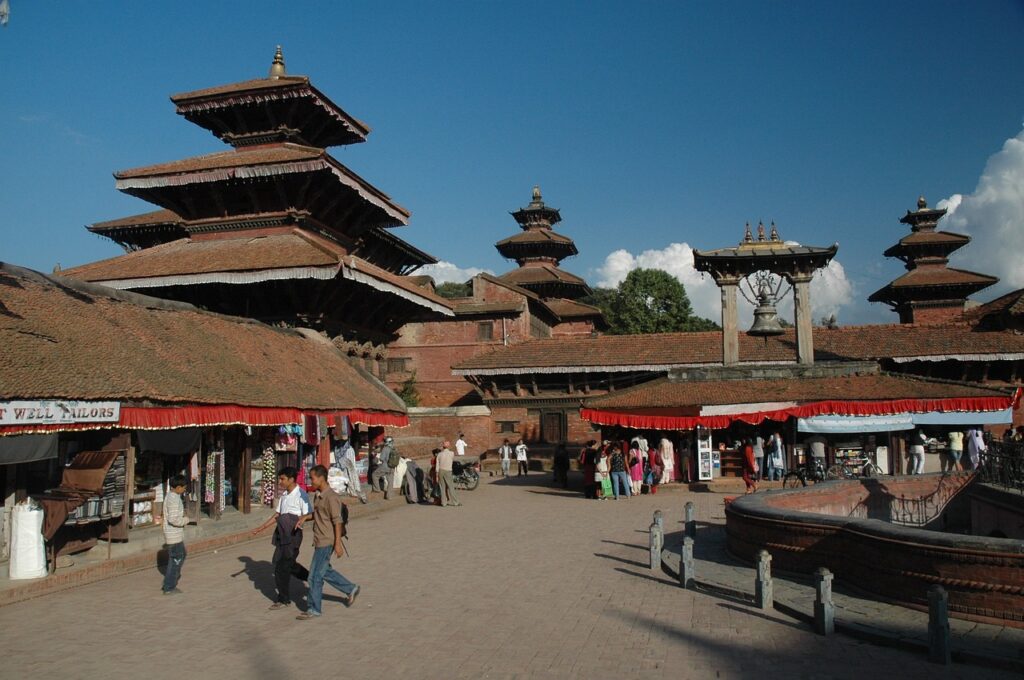
Bhanu Bhakta Acharya
Introduction
Bhanu Bhakta Acharya, often revered as the “Adikavi” or the first poet of Nepal, is a name synonymous with the dawn of Nepali literature. His contributions have not only shaped the cultural and literary landscape of Nepal but have also played a pivotal role in fostering a sense of national identity and unity. In this blog post, we will delve deep into the life, works, and legacy of Bhanu Bhakta Acharya, exploring how his literary genius and patriotic fervor continue to inspire generations.
Early Life and Education
Bhanu Bhakta Acharya was born on July 13, 1814, in the village of Ramgha in the Tanahun district of Nepal. His family belonged to the Brahmin caste, and his grandfather, Shree Krishna Acharya, was a learned scholar and astrologer. This intellectual environment fostered Bhanu Bhakta’s early interest in literature and education. From a young age, he was exposed to the rich oral traditions and classical texts that would later influence his literary pursuits.
Bhanu Bhakta’s formal education began under the tutelage of his grandfather, who introduced him to the study of Sanskrit, the dominant literary language of the time. This early exposure to classical literature laid a solid foundation for Bhanu Bhakta’s future works. Despite the constraints of his era, he was a voracious reader, absorbing the rich literary heritage of India and Nepal.
Advertisement helps us to grow
Literary Journey
Bhanu Bhakta Acharya’s journey as a poet began in a socio-cultural milieu where Nepali literature was still in its nascent stages. The literary scene was dominated by works in Sanskrit, and there was a significant dearth of literature in the Nepali language. Bhanu Bhakta’s genius lay in his ability to recognize the potential of the Nepali language as a medium for literary expression and his determination to elevate it to new heights.
His most celebrated work is the translation of the “Ramayana” from Sanskrit to Nepali. This monumental task was not merely a translation but a creative reinterpretation that made the epic accessible to the common people. By using the Nepali language, Bhanu Bhakta brought the timeless story of Lord Rama closer to the hearts of the Nepali-speaking populace. The “Bhanubhaktiya Ramayana,” as it came to be known, became a cultural touchstone, instilling moral values and a sense of devotion among its readers.
Advertisement helps us to grow
The Impact of the Ramayana
Bhanu Bhakta Acharya’s translation of the “Ramayana” had a profound impact on Nepali society. At a time when literacy rates were low, and access to classical texts was limited to the educated elite, his work democratized knowledge and culture. The “Bhanubhaktiya Ramayana” was recited in households, temples, and public gatherings, becoming a vital part of religious and cultural life.
The poetic beauty and simplicity of Bhanu Bhakta’s language resonated with people from all walks of life. His verses, filled with devotional fervor and ethical teachings, fostered a sense of collective identity and moral uprightness. The “Ramayana” not only served as a religious text but also as a source of inspiration and guidance for generations of Nepalis.
Other Literary Contributions
While the “Ramayana” remains Bhanu Bhakta Acharya’s magnum opus, his literary repertoire extends beyond this epic. He composed numerous poems and hymns that reflect his deep spirituality, love for nature, and concern for social issues. His poetry often delves into themes of devotion, morality, and patriotism, capturing the essence of Nepali culture and values.
One of his notable works is “Bhajans,” a collection of devotional songs that are still sung in temples and religious gatherings across Nepal. These bhajans, characterized by their lyrical beauty and profound spirituality, exemplify Bhanu Bhakta’s mastery over language and his ability to evoke deep emotions through his words.
In addition to his devotional poetry, Bhanu Bhakta also penned satirical verses that critique social evils and injustices. His poem “Prashnottar” addresses the plight of the common people, highlighting issues such as poverty, corruption, and inequality. Through his incisive wit and poignant observations, Bhanu Bhakta sought to awaken the conscience of his readers and inspire social change.
Advertisement helps us to grow
Patriotism and Nationalism
Bhanu Bhakta Acharya’s literary works are imbued with a deep sense of patriotism and nationalism. At a time when Nepal was grappling with political instability and external threats, his poetry served as a rallying cry for unity and national pride. His verses celebrate the beauty and heritage of Nepal, invoking a sense of reverence for the motherland.
In his poem “Nepal,” Bhanu Bhakta extols the natural splendor and cultural richness of his homeland. He describes the majestic Himalayas, the fertile valleys, and the vibrant traditions that define Nepal. This evocative portrayal of the nation’s landscapes and cultural heritage fosters a sense of pride and belonging among his readers.
Bhanu Bhakta’s love for his country is also evident in his poem “Badhu Shiksha,” where he emphasizes the importance of education and moral values for the progress of the nation. He calls upon the youth to embrace knowledge, integrity, and self-discipline, urging them to contribute to the development and prosperity of Nepal.
Advertisement helps us to grow
Legacy and Influence
Bhanu Bhakta Acharya’s contributions to Nepali literature and culture are unparalleled. His pioneering efforts to promote the Nepali language as a medium of literary expression laid the groundwork for future generations of writers and poets. By elevating the status of Nepali literature, he instilled a sense of pride and identity among the Nepali-speaking populace.
The impact of Bhanu Bhakta’s works extends beyond the realm of literature. His poetry continues to be recited and revered in households, schools, and cultural events across Nepal. His verses are an integral part of the Nepali school curriculum, ensuring that his legacy is passed down to future generations.
In recognition of his monumental contributions, Bhanu Bhakta Acharya is celebrated annually on his birth anniversary, known as Bhanu Jayanti. This day is marked by literary events, poetry recitations, and cultural programs that honor his memory and contributions. Statues and monuments dedicated to Bhanu Bhakta can be found in various parts of Nepal, serving as a testament to his enduring legacy.
Bhanu Bhakta Acharya, the pioneering poet of Nepal, holds a special place in the hearts and minds of Nepalis. His literary genius, patriotic fervor, and dedication to the Nepali language have left an indelible mark on the cultural and literary heritage of Nepal. Through his timeless works, he has inspired generations to embrace their identity, celebrate their culture, and strive for a better future.
Bhanu Bhakta Acharya’s legacy is a testament to the power of literature to transcend boundaries and unite people. His contributions continue to resonate with readers, reminding us of the enduring beauty and relevance of his poetry. As we celebrate the life and works of Bhanu Bhakta Acharya, we are reminded of the rich cultural tapestry of Nepal and the timeless wisdom that his verses impart.
Read these Books

Dashain Festival Nepal — Celebrating Victory, Family, and Tradition





100 GK Questions About Health and Medicine to Test Your Knowledge
Important Links

BLE MATHEMATICS SOLUTION
visit the web page to check out the solution of BLE Compilsory Mathematics
Asar 15 Celebration on Nepalese School


